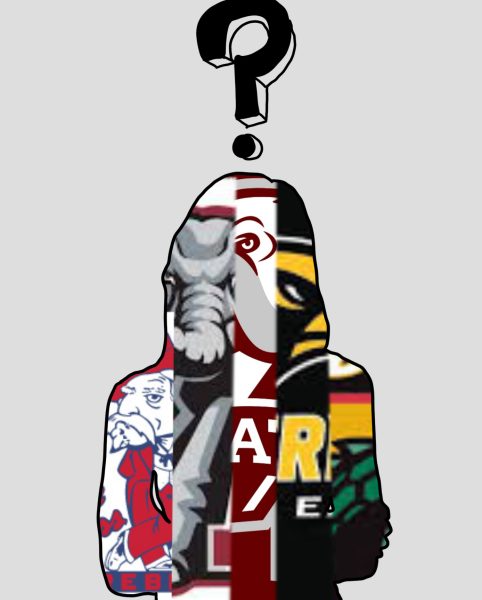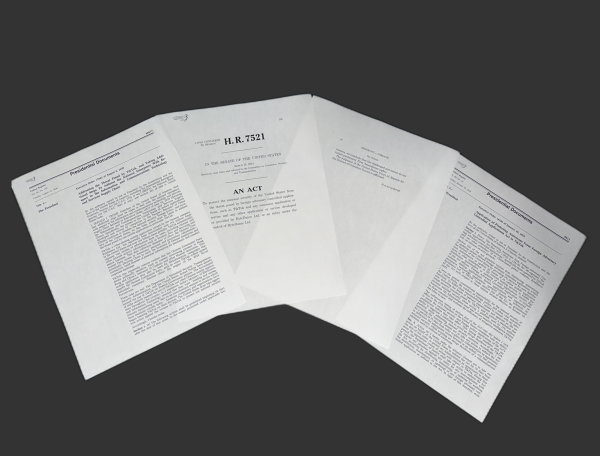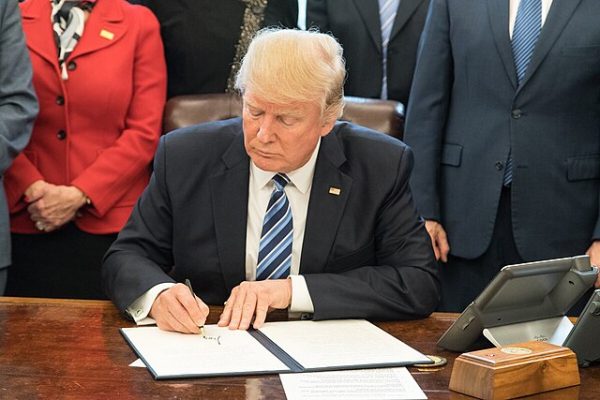Colley: North Korea is Justified
The North Korea crisis has been boiling over for more than the past year, leading to significant developments. Notable outcomes of the ongoing crisis include the North Korean testing of ICBMs that can reach the entirety of the continental US, the North Korean testing of its first thermonuclear bomb and the intensifying of joint United States-South Korean military drills on the Korean Peninsula.
The common rhetoric heard in the media of the western world is that North Korea is simply a rogue, totalitarian state, trying to antagonize the innocent South and threaten civilian lives in the US. However, this is far from the truth.
To really understand the context of the ongoing crisis, one must look at the beginnings of the current situation in Korea. Briefly following the end of the Second World War, a popular provisional People’s Republic of Korea was established. Troops from both the US and Soviet Union occupied the peninsula following Japanese withdrawal. However, their opinions of the People’s Republic were vastly different. The People’s Committees, led by native Koreans, received recognition and cooperation from the Soviet Government. However, the US Military Government opposed and outlawed it, leading to the establishment of South Korea as a US ally. The remnants of the People’s Republic of Korea were salvaged in the North, and with Soviet support, North Korea was founded, leading to its aligning with the Soviet Bloc.
With the establishment of these two opposed, competing governments in Korea, there was a lot of strife in the few years leading to the Korean War. Relations on the peninsula reached an all-time low when the South began to massacre civilians, accusing them of supporting the Communists in the North and occupy territory that was deemed to be under the administration of the North. In the latter half of 1950, Kim Il-sung, leader of the North, called for Korea-wide elections and sent a diplomatic mission to the South to pursue peace, proposals which leader Syngman Rhee, who repeatedly stated his intention to conquer the North, immediately rejected.
Largely, the US Military Government and its successor, South Korea, were unpopular due to their support and continued employment of Japanese colonial officers and policies, overthrow of the popular provisional government and its support of massacres. The North, the party which formally started the War, saw this invasion not as conquest, but as a liberation of the rest of their country, the same country that had spent the past few decades under the rule of a foreign power. A victory for the South would have simply been the US consolidating its indirect control of the Korean Peninsula to threaten the People’s Republic of China; the US didn’t care about establishing democracy in Korea but only about having an authoritarian client state.
This anti-imperialist mission to liberate their country from foreign control is still the main inspiration for the North’s foreign policy today. While the South isn’t nearly as authoritarian as it once was, the North still views it as a US client state. This is not completely unjustified, considering how much the South is aligned and reliant upon US assistance in regional affairs. The fact that the US stations troops in the South itself serves as a threat against the North as well, a reminder that the US could intervene at any time. This threat is the very reason that North Korea began developing its nuclear weapons; the United States will not risk an invasion when there is a nuclear deterrent, securing the country’s independence. It doesn’t help the situation that the US response to the tests was to intensify military exercises and war games in South Korea either.
North Korea, the Democratic People’s Republic of Korea, is simply a bastion of anti-imperialism fighting for the independence and self-determination of the Korean people. Its objective is freedom and liberation by means of building Socialism and Juche. The perceived aggression of this government is, in reality, an act of self-defense, opposition to imperialist aggression from the United States and the rest of the West.

Caleb Colley is a senior from Walls, Mississippi. He formerly went Lake Cormorant High School before coming to MSMS. Caleb can often be found taking refuge...






Average American • Sep 21, 2018 at 10:02 pm
If you are sympathetic to North Korea one could take this opinion. It’s always about point of view and always multiple sides to a story. If there is a fight between two people, they usually blame the other person and each can make a case for themselves. If you look at communism as evil, (which it is, history has proven this as true with eventual oppression and starvation of the people and the fact it has failed everytime it is tried) then the US presence in South Korea could be seen as a way to keep North Korea somewhat contained seeing they have a tendency for killing their own people and using food to keep control of them. It may be bumpy from time to time and we (the US) have not always done the right thing, we have been generally on the side of good and shown the world the power of a free capitalistic society.
Parker Neilsen • Dec 6, 2021 at 1:51 pm
I found your response to be very interesting. Good Job! However, I find North Korea to not be just, yet it is debatable. I feel like they are cruel and power hungry. However, good job
Nancy Colley • Sep 11, 2018 at 8:03 pm
Great job, Caleb!!! I love you